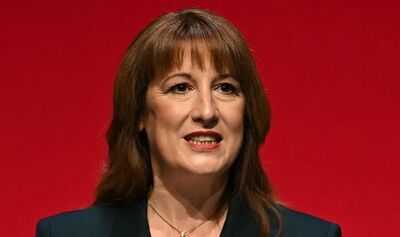
Financial experts have warned people to brace for tax increases in the Autumn Statement. Chancellor Rachel Reeves will set out her latest policies on November 26. Paul Barham, head of international private client tax at Forvis Mazars, said tax hikes are "almost certain" given the Government is keen not to cut public spending.
He warned: "Tax rises are coming and will impact financial planning." Looking at how the Government may look to increase tax revenues, he said: "Tax by stealth is more likely than any large-scale overhaul, due to promises made in the manifesto and repeated at the Labour party conference not to increase VAT, income tax or National Insurance.
"We can expect to see a continued freeze on income tax thresholds, a subtle but effective way to increase revenue as wage inflation pushes more people into higher tax brackets. The Government may also close tax advantage schemes that have so far avoided attention, such as non-AIM business relief investment schemes."
Income tax thresholds and the personal allowance are frozen at their current rates until April 2028, although Labour said previously it would not continue the freeze after then.
Gerard Boon, managing director of Boon Brokers, said he believes there could be key changes to capital gains tax. He said: "While capital gains tax currently only applies to second homes and buy-to-let properties, Rachel Reeves' proposed changes could reduce exemptions or push rates closer to income tax levels.
"From my perspective in the mortgage market, these changes would have a huge effect on the housing market. Landlords and property investors would feel the impact first-hand, and this could ripple through the rental market and wider property prices, affecting everyday people looking for a home or a secure investment."
Changes to capital gains taxMr Barham also said there could be changes to capital gains tax, such as increasing the exit charge on individual assets. He said: "Designed to prevent people from avoiding tax on asset gains by moving abroad, it could be introduced on unrealised gains when an individual or company ceases to be a UK resident.
"Such is the case already on trusts and business assets. Given the exodus in advance of the abolition of the non-dom regime, not having introduced it at the same time will seem like a missed opportunity but it will still have the effect of ensuring gains created in the UK are taxed here."
Mr Boon also said there could be a new tax brought in with an annual property tax, based on property values, to replace the current stamp duty land tax system.
He said: "While the idea is to give local authorities a more predictable revenue stream, it would surely and inevitably push up costs for homeowners, especially those with higher-value properties.
"In fact, a recent study we conducted found that 75 percent of respondents believe retired and working homeowners would suffer the most under such a tax, highlighting how deeply it could affect everyday people."
The Conservatives set out a policy at their party conference to abolish stamp duty on primary residences, to make it easier for people to get on the property ladder.
Mr Boon said: "With that on the table, it feels almost certain that Labour will be under pressure to replicate this approach, and we could see a similar announcement in the Autumn Statement in what will become a game of 'Top Trumps' to help secure Labour's re-election.
"For households and investors, these potential tax changes really highlight the need to plan ahead. Taking the time to review your property portfolio, understand possible tax liabilities, and securing professional advice could make a big difference in the months ahead."
Tim Sarson, head of UK tax policy at KPMG, also said there is a broad consensus that there will be tax increases in the Autumn Statement.
He said: "It seems almost inevitable that income tax thresholds will be frozen again, but beyond that there are few easy options. There has been some speculation about a rise in the VAT rate, or a drop in the registration threshold. Neither seem likely to us.
"Raising the rate would be inflationary at a time the Government is looking for prices to stabilise, and lowering the threshold, while arguably quite sensible fiscally, would risk angering a lot of small businesses."
He said there could also be new policies for taxes on gambling and around how banking is taxed, such as changes to the bank levy or banking surcharge.
You may also like

'No big deal for us': Putin says Russia ready to match US in arms race; warns others may test nukes

Fire breaks out at metro warehouse in Kanpur

Prez Murmu to offer prayers at Dwarkadhish Temple, attend Gujarat Vidyapith Convocation today

"Pioneer of democratic values": Amit Shah pays tribute to socialist icon JP Narayan

JP Nadda pays tribute to freedom fighter, socialist Jayaprakash Narayan on his birth anniversary







